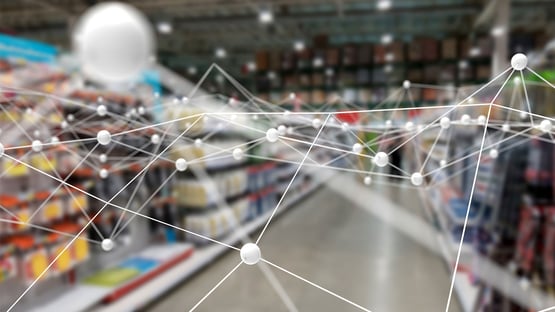AI will make a difference in retail

In the past few months, many people have been fascinated by a new AI-driven chatbot that can provide answers to most questions. This kind of tool makes AI more tangible for the vast majority of people, and that may be necessary, especially for retailers, which must dare to start experimenting with AI. Serge de Gosson de Varenne, Pricer’s AI expert, shares use cases in which AI can make a difference for retailers, and sees a possible future for ChatGPT in stores.
You’ve probably heard that AI is the future and that it’s important, but if you're like most people, you might have a fairly vague idea about just how AI will make a difference in retail. Sure, you may have heard that it can provide better forecasts, but beyond that?
In fact, many different types of AI projects have been carried out in recent years, ranging from automation to new kinds of cameras and features being tested in order to better act on data. But the fact is that in many ways, we’ve only just scratched the surface. There are many more areas in which retail could embrace AI.
Prices and blockchains
AI could play a more important role in controlling prices to optimize margins and competitiveness, but also to reduce food waste, for example. It could also be used more extensively to optimize warehousing and supply. In addition, we’re seeing how AI could enhance the security of transactions between suppliers and stores by leveraging blockchains.
At Pricer, we’ve also worked with retailers to automate the detection of empty shelves with image recognition technology and an AI-driven engine that can understand precisely when store shelves need to be addressed, and suggests the right actions to staff based on current stock levels, for example.
Borrowing from online retailers
AI tools from e-commerce are also being explored for physical retail, such as AI-powered recommendation engines. Since an overwhelming majority of customers bring cell phones into stores, it would also be reasonable to explore recommendation engines in brick-and-mortar stores.
Even ChatGPT, which we mentioned in the introduction, could become valuable in retail in the coming years. With its power and speed, it could form the basis of a brand-new kind of customer service, with advice and recommendations. It could also help stores create advertising and product description content. ChatGPT may currently be a text bot, but it won't be long before we can have a direct dialog via speech with it.
Customers have demands
Retailers who have been early adopters of AI have generally had positive experiences, and often find that it clearly streamlines work and removes unnecessary or time-consuming tasks from staff. Even those who have yet to launch projects often understand the power of data and increased intelligence for staying competitive.
When it comes to the possibilities, the door that ChatGPT has opened to the public will not be closed. Customers will increasingly expect stores to know not only about the flow of goods, but also what they like and dislike. That’s why it is important that as an industry, we pick up the pace now and dare to experiment more with AI in the next year.
Published on May 2, 2023